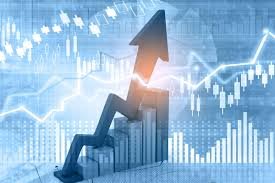Economic growth is a crucial goal for any country that aims to achieve higher levels of development and prosperity.
Economic growth is one of the most important indicators of the performance and development of a country. It refers to the increase in the value of goods and services produced by an economy over a period of time, usually measured by the percentage change in the gross domestic product (GDP) or the gross national income (GNI) . Economic growth reflects the ability of an economy to produce more output with the same or less inputs, which implies higher productivity and efficiency .
Characteristics of Economic Growth
Some of the main characteristics of economic growth are:
- It is a dynamic process that changes over time and across countries, depending on various factors such as population, technology, institutions, policies, and natural resources .
- It is a relative concept that can be measured in different ways, such as per capita, real, nominal, or potential growth. Per capita growth measures the average income of each person in an economy, real growth measures the increase in output after adjusting for inflation, nominal growth measures the increase in output at current prices, and potential growth measures the maximum output that an economy can produce with its existing resources .
- It is a long-term phenomenon that reflects the cumulative effects of many factors over time. Short-term fluctuations in output due to business cycles or external shocks are not considered as economic growth, but rather as economic fluctuations .
Role and Impact of Economic Growth
Economic growth plays a vital role in improving the living standards and well-being of people in a country. Some of the positive impacts of economic growth are:
- It increases the income and consumption of people, which enables them to afford more goods and services that satisfy their needs and wants .
- It creates more employment opportunities and reduces poverty and inequality, which enhances the social and economic mobility of people .
- It generates more tax revenues for the government, which allows it to provide more public goods and services such as education, health care, infrastructure, and social security .
- It fosters more innovation and technological progress, which improves the quality and efficiency of production and increases the competitiveness of an economy in the global market .
However, economic growth also has some negative impacts that need to be addressed and mitigated. Some of the challenges posed by economic growth are:
- It may cause environmental degradation and depletion of natural resources, which harms the ecological balance and sustainability of an economy .
- It may create social problems such as urbanization, congestion, crime, corruption, and cultural erosion, which affect the quality of life and social cohesion of people .
- It may lead to macroeconomic instability such as inflation, unemployment, balance of payments deficits, and external debt, which undermine the stability and resilience of an economy .
Economic growth is not an end in itself, but rather a means to an end. Therefore, it is important to ensure that economic growth is inclusive, sustainable, and balanced, and that it contributes to the overall well-being and happiness of people.
Copyright@ India CSR







